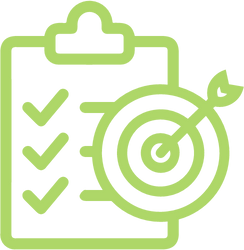The Importance of Study Skills: In School, in Career, in Life.
by Matthew Finley
One of the most important aspects when it comes to high achievement in school is studying. Given all the information presented in school and out of school through readings and homework, how on earth can one person process and retain everything? The simple answer comes down to one thing: studying.

It's time to get real about time...and effort.
Studying comes in many forms, whether it be going over vocabulary on flashcards, doing sample problems for a concept in math, or any other way in which students prepare for tests and papers. All these various forms of studying require both time and effort. You cannot expect to memorize vocab overnight and remember it for a whole semester or expect to understand what a reading means without paying attention. The same is true for all types of studying. Luckily, studying can be improved through working on specific skills and habits.
While studying for tests may come more naturally to some, building study habits and skills requires time and active work. Just like you might train for a sport to win a race or a game, you need to train for school in order to achieve success. Additionally, good, solid study habits develop from consistency. Again, like practicing for a sport to gain muscle memory, you need to practice study skills in order to make them become more automatic. Over time, anyone – even someone who struggles with school or faces additional challenges like ADHD – can build good, strong study skills given the right amount of work, time, and consistency.
Building study skills now makes for an easier education later.
 Developing study skills and habits also help students transition more easily through their education. As students progress from primary to secondary and even post-secondary education, their school experience shifts over time. Primary school typically consists of ample teacher guidance with some amount of independent work at home. This gradually changes as students become older. Over time, the responsibility for a student’s education increasingly shifts into their own hands. Students start to see this in high school as their learning becomes more reliant on outside work. By the time a student reaches college or trade school, most of their education comes from time spent outside of the classroom rather than inside of it. This means that their ability to learn and progress becomes ever more reliant on their own work, which means study skills and habits become ever more important. Developing study skills and habits early and building from a strong base allows students to transition more easily since they are better at handling things like independent work and time-management. As noted, these skills become ever more important over time, and they especially help facilitate the jump from high school to college where students experience a massive shift in their time spent inside versus outside the classroom, as well as significant changes in their activities, and increased independence. Building up a strong core of study skills and habits can make a massive difference in those first semesters and classes in college and, by extension, success in college overall.
Developing study skills and habits also help students transition more easily through their education. As students progress from primary to secondary and even post-secondary education, their school experience shifts over time. Primary school typically consists of ample teacher guidance with some amount of independent work at home. This gradually changes as students become older. Over time, the responsibility for a student’s education increasingly shifts into their own hands. Students start to see this in high school as their learning becomes more reliant on outside work. By the time a student reaches college or trade school, most of their education comes from time spent outside of the classroom rather than inside of it. This means that their ability to learn and progress becomes ever more reliant on their own work, which means study skills and habits become ever more important. Developing study skills and habits early and building from a strong base allows students to transition more easily since they are better at handling things like independent work and time-management. As noted, these skills become ever more important over time, and they especially help facilitate the jump from high school to college where students experience a massive shift in their time spent inside versus outside the classroom, as well as significant changes in their activities, and increased independence. Building up a strong core of study skills and habits can make a massive difference in those first semesters and classes in college and, by extension, success in college overall.
Beyond the classroom: A more productive and fulfilling life.
 Even for students who may enter the workforce after graduating high school, strong study skills and habits can prepare them for future jobs and careers. While some skills and information learned in school may not translate much into the real world (how often do you need to find the area of circle or know when the French Revolution was in your daily life for instance?), other things certainly do. Study skills and habits really count among the more practical aspects of an education. Learning how to manage one’s time, prioritize tasks, break down and understand information, etc. are all valuable skills for living a fulfilling and productive life no matter what someone might do. Learning and developing such skills and habits in school will make transitioning into adulthood, and all the responsibilities and headaches that come with it, much easier.
Even for students who may enter the workforce after graduating high school, strong study skills and habits can prepare them for future jobs and careers. While some skills and information learned in school may not translate much into the real world (how often do you need to find the area of circle or know when the French Revolution was in your daily life for instance?), other things certainly do. Study skills and habits really count among the more practical aspects of an education. Learning how to manage one’s time, prioritize tasks, break down and understand information, etc. are all valuable skills for living a fulfilling and productive life no matter what someone might do. Learning and developing such skills and habits in school will make transitioning into adulthood, and all the responsibilities and headaches that come with it, much easier.

Success in school, and life more generally, often comes from developing skills and habits. Through time and effort, students can develop successful study skills and habits. These enable students to transition through and succeed in school more easily as they learn more complex information and as they become more independent in their learning. Even for students who do not go on to college, successful study skills and habits can lead to successful lives and careers through making the many challenges and responsibilities of adulthood easier to manage. Overall, strong study skills and habits lead students to more success now and in the future, so why not spend time developing them?
If you or your student could use some study/organizational skills coaching, we can help.





